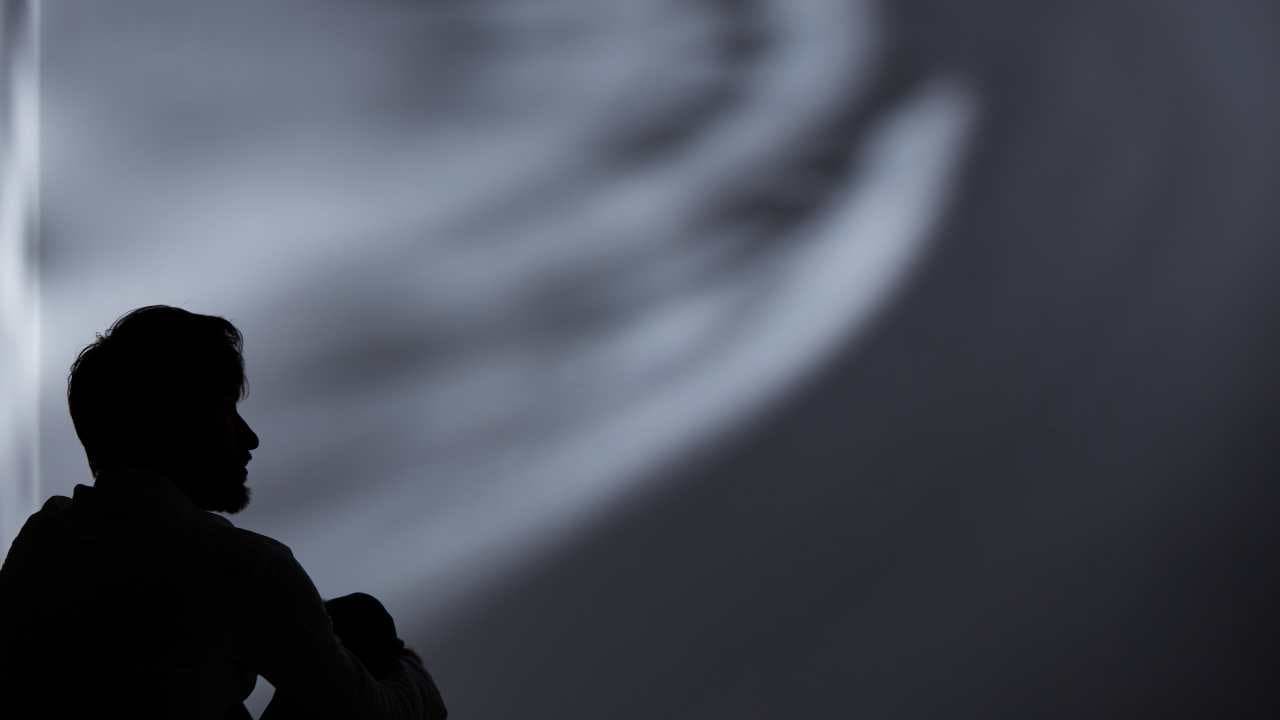Overcoming Gay Loneliness: Support for Lonely Gay Men
Loneliness has spread through society, reaching alarming levels.
It's a feeling that lingers.
It persists and simmers as a constant emotion.
Loneliness significantly affects men in the LGBTQ+ community.
Studies show higher rates of loneliness among gay men than heterosexuals. This loneliness leads to depression, anxiety, and suicidal thoughts.
This affects both older and younger gay men, whether single or partnered, contributing to an epidemic of gay isolation.
If you're a gay man reading this, your feelings of isolation are important.
But there’s optimism.
Understanding our challenges and taking action can foster deeper connections and create a community where we all feel included.
What is Loneliness?
Loneliness isn’t just about being alone. It’s the hollow feeling of disconnection, the sense that no one truly sees or understands you.
People can surround you, and you can still feel isolated, like an outsider in your own life.
Many of my clients describe it as an emptiness in their stomach. Examples of this emptiness include surface-level relationships and interactions lacking real closeness.
It makes sense.
As humans, we are social beings who crave connection. We want to be heard, known, valued, and connected.
When that’s missing, it influences how we see ourselves and the world.
Loneliness isn’t something to hide or feel ashamed of. It’s a human experience affecting people across all backgrounds - gay, straight, young, old, and even those who appear to have it all together.
However, ignoring it won’t make it disappear.
The Unique Challenges Contributing to Gay Loneliness
Loneliness among gay men is a pervasive issue, rooted in societal stigma, internalized homophobia, and the complexities of forming authentic connections in environments that marginalize LGBTQ+ identities.
Understanding the causes of this loneliness is essential for fostering self-acceptance and building meaningful relationships.
Societal Stigma: Despite advancements in LGBTQ+ rights, many gay men face discrimination and prejudice, leading to feelings of alienation and unworthiness. Studies show LGBTQ+ individuals are more likely to experience loneliness than their heterosexual peers.
Internalized Homophobia: Growing up in heterosexual environments can lead to negative beliefs about one's sexual orientation, resulting in self-loathing and reluctance to embrace one's identity. This internalized homophobia can intensify loneliness and depression.
Fear of Rejection: The fear of being rejected by family, friends, or potential partners can deter gay men from pursuing authentic relationships, fostering loneliness and emotional withdrawal. Research indicates gay men have fewer close friends than their heterosexual counterparts, contributing to isolation.
Social Media and Dating Apps: Social media and dating apps have intensified gay loneliness. Constantly comparing oneself to perfect lives in social media posts and establishing fleeting connections through dating apps can leave individuals feeling more isolated than ever. Curated feeds and sending brief messages provide immediate gratification, but they lack the deeper emotional bonds found in face-to-face relationships.
Age-Specific Challenges in Gay Loneliness
As individuals navigate different life stages, gay loneliness takes on unique age-specific forms.
Young LGBTQ+ people may face isolation during formative years. They navigate coming out and finding a supportive community while dealing with typical adolescent pressures.
Conversely, middle-aged and older gay individuals might face loneliness from the loss of partners or friends and societal neglect, resulting in feelings of being ignored.
Each age group faces its own hurdles yet seeks connection and understanding in a difficult world.
Recognizing these challenges is essential to address each demographic’s needs. It allows for tailored support systems that promote resilience and belonging.
Feeling Disconnected? You're Not Alone
As a gay therapist, I understand the isolation many in our community face. Let's talk openly and help you build connections.
Schedule a session now for relief, community, and support
Connect with me →
How To Recognize Unhealthy Loneliness
Identifying loneliness is essential for addressing its impact:
Social Withdrawal: Avoiding social interactions due to fear of judgment or past negative experiences can increase isolation. This withdrawal stems from a lack of supportive environments where individuals feel safe expressing their true selves.
Emotional Numbness: A persistent feeling of emptiness or detachment makes it challenging to form deep connections. This numbness can be a defense mechanism against anticipated rejection or discrimination.
Reliance on Hookup Apps: Excessively using platforms like Grindr as a substitute for genuine connections can exacerbate feelings of loneliness and inadequacy. While these apps offer immediate interaction, they often lack the depth required for meaningful relationships.
The Mental Health Impact of Loneliness
Recognizing the potential negative impacts of loneliness, especially in men, is important.
Loneliness is linked to higher rates of:
Anxiety
Low self-esteem
Social isolation
Low-stress tolerance
Impaired cognitive function
Substance abuse
Obesity
Insomnia and sleep issues
Suicidal thoughts/actions
Once you recognize loneliness’s effects on your mental health, take steps to address it.
Overcoming Loneliness
Addressing loneliness involves intentional efforts to build genuine relationships and foster self-acceptance:
Engage in LGBTQ+ Communities: Participating in local or online LGBTQ+ groups can provide a sense of belonging and understanding, reducing isolation. These communities offer safe spaces to share experiences and build supportive networks.
Seek Professional Support: Therapists specializing in gay mental health can help navigate loneliness and develop self-acceptance strategies. Professional support provides tailored tools to address the challenges faced by gay men.
Develop Self-Compassion: Embracing one's identity and practicing self-love are foundational steps toward connecting with others authentically. Self-compassion involves recognizing one's worth beyond societal judgments and nurturing a positive self-image.
Embracing Authentic Relationships
Building meaningful connections requires vulnerability and openness:
Communicate Openly: Sharing your experiences and feelings fosters deeper bonds.
Pursue Shared Interests: Engaging in activities you enjoy can lead to meeting like-minded individuals.
Set Healthy Boundaries: Understanding and respecting your limits ensures supportive and nurturing relationships.
Remember, You’re Not Alone
Seeking help is a courageous step toward overcoming loneliness.
Professional support can provide tailored strategies for navigating these challenges and building a fulfilling social life.
FAQs related to gay loneliness
Which online support groups help gay men cope with loneliness?
Online support groups can offer temporary relief, but they rarely address the root causes of gay loneliness. Groups like the Men's Therapy Center online groups, PFLAG virtual meetings, or Reddit communities like r/gaybros provide spaces for sharing experiences. Some men find connection through Facebook groups focused on specific interests or life stages.
But here's what these groups can't do: they can't rewire the nervous system responses that make you feel unsafe in your own skin. They can't undo years of hiding parts of yourself or teach you how to be vulnerable without the protective layers you've built. Online groups often become another form of performance – sharing the "right" kind of struggle or offering support you don't actually feel.
The loneliness many gay men experience isn't just about lacking social connection. It's about a fundamental disconnection from authentic self-expression that started long before you ever logged into a support group.
Where can I find counseling services specializing in gay loneliness?
Finding a therapist who truly understands the specific nature of gay loneliness is crucial. This isn't standard social isolation – it's a complex pattern rooted in developmental trauma, minority stress, and the psychological impact of growing up different in a heteronormative world.
As a gay psychotherapist specializing in this work, I provide online therapy sessions specifically designed for gay men struggling with these deeper patterns of disconnection. My practice focuses on the underlying causes of gay loneliness: the hypervigilance that never fully switches off, the automatic code-switching that distances you from your authentic self, and the ways internalized shame creates barriers to genuine intimacy.
You can book a consultation through my website to explore how specialized therapy can address not just the symptoms of loneliness, but the root causes that generic counseling approaches miss.
What therapy platforms offer sessions for gay individuals struggling with loneliness?
Most therapy platforms treat loneliness as a surface-level social problem. They'll match you with any available therapist and assume that talking about feelings will solve everything. But gay loneliness requires someone who understands minority stress, internalized homophobia, and the specific ways growing up closeted affects adult relationships.
I offer specialized online therapy sessions through my private practice, working with gay men across Europe and the UK. This isn't generic counseling with rainbow flag stickers – it's therapy designed around the specific psychological realities of gay male experience. My approach addresses why your nervous system still activates in rooms full of straight allies, why coming out didn't solve the connection problems, and why surface-level social skills advice doesn't touch the deeper patterns.
You can schedule a consultation directly through my website to explore whether this specialized approach matches what you're looking for.
Which social clubs or meetups are popular among lonely gay men?
Social clubs and meetups can provide temporary relief, but they often recreate the same performance dynamics that contribute to gay loneliness in the first place. Popular options include gay hiking groups, professional networking events, book clubs, and hobby-based meetups found on platforms like Meetup.com or Facebook Events.
The problem is that many gay men approach these events with the same hypervigilance and code-switching patterns they use everywhere else. You show up trying to be the "right" kind of gay person, monitoring how much space you take up, how much you reveal, how much you perform. The loneliness doesn't disappear just because you're in a room full of other gay men.
Real connection requires dropping the performance, and that's terrifying when you've spent years perfecting it as a survival strategy. Social clubs can't teach you how to be genuinely yourself with others – they just provide new stages for the same old show.
Where can I book one-on-one coaching for overcoming gay loneliness?
Coaching and therapy serve different purposes when addressing gay loneliness. Life coaching focuses on goals, strategies, and forward momentum. Therapy addresses the deeper psychological patterns that create the loneliness in the first place.
I provide one-on-one sessions specifically designed for gay men who recognize that their loneliness stems from more than just social skills or dating strategies. This work examines how growing up different affects your capacity for authentic connection, why vulnerability feels dangerous even in safe spaces, and how to recognize the difference between genuine intimacy and performance.
You can book a consultation through my website to explore whether individual therapy sessions would address what you're experiencing. This isn't coaching that teaches you techniques – it's therapeutic work that examines why those techniques feel impossible to implement authentically.
What mental health apps focus on the gay community's loneliness issues?
Mental health apps targeting gay men often provide surface-level solutions to deeper psychological patterns. Apps like Pride Counseling, LGBTQ-specific meditation apps, or general wellness platforms can offer some support, but they can't address the complex relational trauma that underlies much gay loneliness.
These apps typically offer generic mindfulness exercises, daily affirmations, or peer support features. But gay loneliness isn't solved by breathing exercises or positive self-talk. It stems from years of hiding, performing, and disconnecting from authentic self-expression as survival strategies.
What you need isn't an app – you need someone who understands why your nervous system learned to stay activated around other people, why emotional intimacy triggers fight-or-flight responses, and why "just be yourself" feels like useless advice when you're not sure who that person actually is underneath all the protective layers.
The real work happens in relationship with someone trained to recognize and address these specific patterns, not through algorithms designed to keep you engaged with content
By Gino Cosme
Gino is a gay counselor and therapist working online with English-speaking gay men in Germany, Italy, Spain, the UK, the Netherlands, and the USA.
Ready to talk to someone who understands?
I know what loneliness feels like.
I also know how to move beyond the anxiety of loneliness and feel more connected.
Schedule a session to find relief, community, and support.







